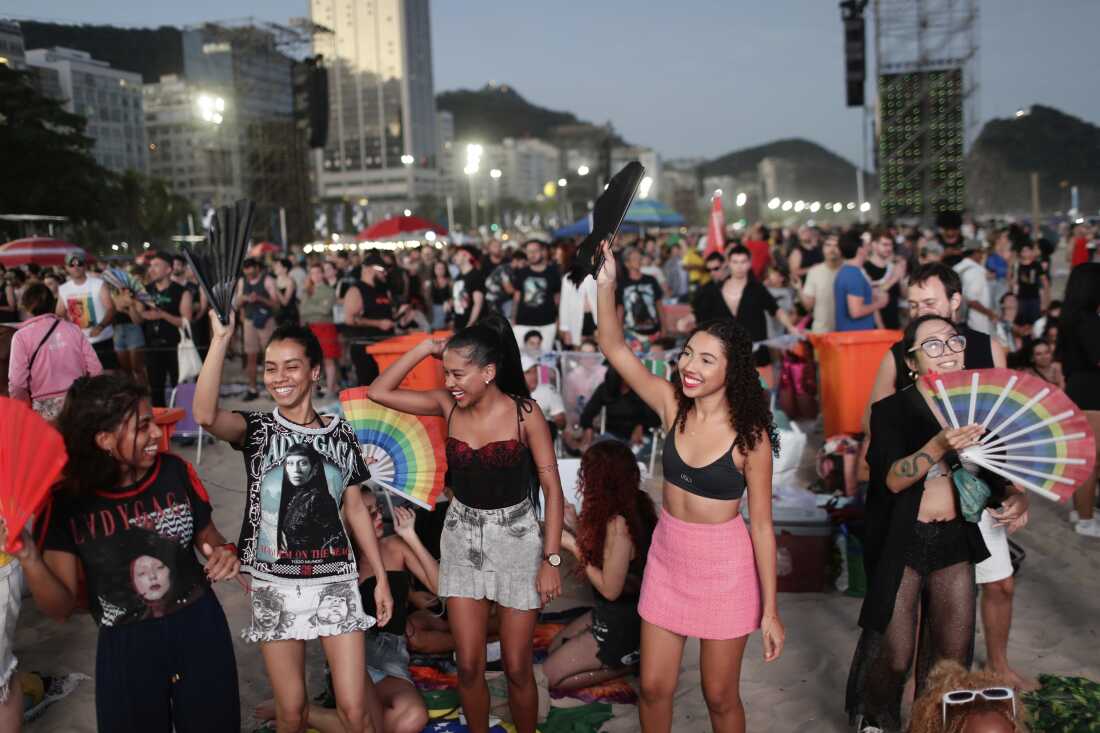The Spectacle at Copacabana: Lady Gaga's Night of Triumph and the Illusion of Free Concerts
Lady Gaga's monumental Copacabana Beach concert highlights the fine line between grand spectacle and genuine artistry, questioning the reality of 'free' concerts in a commercial world.

As the waves kissed the shores of Copacabana Beach under a moonlit sky, Lady Gaga stood victorious, commanding the largest audience of her career. Over two million souls converged in Rio de Janeiro for a free show that was anything but cheap in spirit or spectacle. Yet, as vibrant as this event was, it casts a spotlight on a larger, more controversial narrative about the intersection of pop culture, commerce, and authenticity.
Rebellion or Spectacle?
Lady Gaga, an icon who once represented the underdog and the misunderstood, now commands the stage in ways that blur the line between genuine artistry and grandiose spectacle. Yes, she returned with a bang after leaving Brazilian fans disappointed in 2017, transforming their longing into elation with a five-act performance that spanned her illustrious career. But let's be clear: the grandeur of this event, despite being free for attendees, carries with it the weight of commercial intent and municipal aspirations.

Rio's Mayor Eduardo Paes hints at Copacabana Beach as a burgeoning platform for more massive music events, with Gaga as its pioneering spirit. But aren't such events merely the facade of rebellion—an attempt to capture that raw, unbridled energy of real rock ‘n’ roll—while serving a city’s desire for tourist influx and revenue? The true rebellious spirit of music is too often repurposed to fill city coffers and boost cultural clout rather than challenge the status quo.
The Cost of "Free"
The term “free concert” is a paradox in a world driven by economic interests. Yes, the entrance may not come with a ticket price, but the cost is subtly absorbed by the city, sponsors, and the undying loyalty of Gaga's fans. Their presence becomes part of a tableau—hearts and voices filling a locale that soon may be yet another cog in the music industry's well-oiled machine.

As a critic with a penchant for defiance against hollow pop culture, one cannot help but question the genuineness of such events. They are carefully choreographed dances between artist, audience, and corporate backers. Gaga’s heartfelt speeches and acknowledgment of the LGBTQ+ community weave a narrative of connection, yet in this grand setting, does she not become a vessel for musical hegemony under the guise of inclusive celebration?
Where the True Rebels Roam
The night was nothing short of magical, as transcendent moments of connection lit up the beach. However, the pervasive smell of commercialization can sometimes overshadow the experience. True rebellion doesn’t reside in numbers or scale; it stomps defiantly in small clubs, basement gigs, and the hearts of artists unafraid to burn brightly in their authenticity.
Lady Gaga’s return is undeniably a personal triumph, but perhaps within her innovation and nostalgia, what we really yearn for is a return to music that breaks molds, not just attendance records. To a time when music was dangerous, unpolished, and fiercely independent—just like Gaga once was, and still could be, if untethered from the inevitable lure of spectacle.




